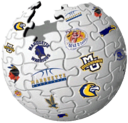Last year's pre-season scrimmage against the University of Virginia was a smashing success, with indications that the competitive action against a legitimate program did more to advance the Warriors' progress than a mindless exhibition game. Of course, exhibition games also pay some bills at MU. According to the athletic department, Marquette generates roughly $180,000 in gross revenue from exhibition games. Sacrificing that guaranteed gate in favor of a closed scrimmage is not an insignificant consideration for an institution that relies on men's basketball to do more than just cover its own costs.
Or maybe it was.
Last week, MU announced the program would take matters a step further and eschew another home exhibition game in favor of two closed, pre-season scrimmages next season. According to a report from Todd Rosiak, MU will scrimmage against both Kansas State and the Kevin O'Neill coached USC Trojans in the fall.
In choosing a pair of closed scrimmages over two exhibition games, Marquette is walking away from roughly $360,000 in gross revenue. Still, Mike Broeker, Marquette's Deputy Director of Athletics, said the decision was simple. "The value of two additional high major experiences in a controlled setting can't be quantified," said Broeker.
Forgoing the guaranteed gate from exhibitions is just one example of Marquette's favorable basketball economics. In fact, based on what we know about next season's schedule, the program is poised to have fewer home games than usual. The number may be as few as 16, rather than the 17 to 19 games MU typically hosts. The result will be a higher-quality home slate for the Warriors, which will ease the long-standing downside for Marquette season ticket holders, namely, too many RPI-killing 'buy' games.
What changed? The increased revenue driven by the men's basketball program now affords the university flexibility it previously did not have. Unlike previous eras, program revenue is not overly dependent on home gate receipts. The move to the Big East, and the program's success in the league and beyond, has significantly changed the financial equation. "Increased revenue via conference distribution, NCAA play, television appearances, licensing and merchandising and sponsorships makes it (scheduling flexibility) possible," said Broeker.
For example, next season Marquette has already secured nationally televised games against LSU, University of Wisconsin-Madison and Vanderbilt. The program is also working on a neutral-site game against another BCS program. These games, and the associated television revenue they create, augment the anticipated conference payouts, NCAA tournament payouts and other sources of revenue.
The decision to pursue quality over quantity with the schedule is possible because the program creates a remarkable revenue stream for the university. According to a report in Forbes earlier this year, the men's basketball program generated more than $13 million in revenue in 2009-2010. Even when off-set with $8,185,030 in expenses, the university earned a basketball-related profit of $5,692,445 during the previous academic/athletic year. Most (all?) of this goes to help support additional athletics programs.
Ultimately, the large and sustainable revenue streams generated by the men's basketball program are being reinvested in the team. The decisions to emphasize quality over quantity will assist the program's early and in-season development, and will also improve the strength of schedule -- a primary determinant in receiving and advantageous NCAA tournament bid.
Thursday, May 05, 2011
Marquette Emphasizing Player Development, Schedule Quality
Written by
TB
at
8:22 AM
![]()
Labels: basketball revenue, basketball spending, Kansas State, Scrimmage, USC
Subscribe to:
Post Comments (Atom)

No comments:
Post a Comment